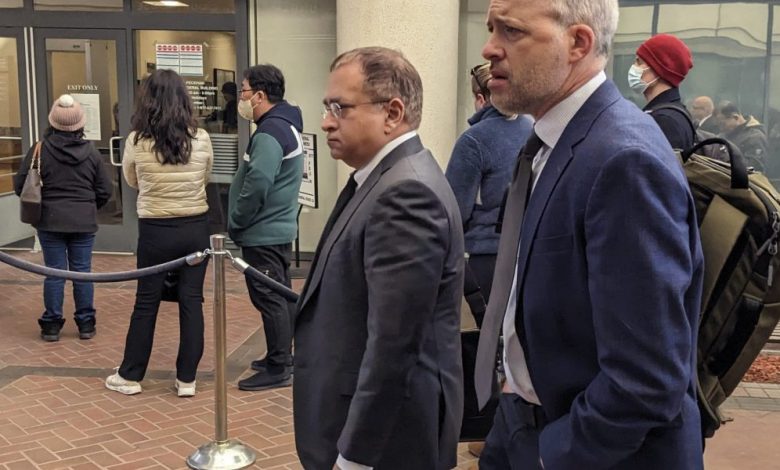Sunny Balwani is still not asking for jail time, damages over Theranos scandal

Former Theranos CEO Ramesh “Sunny” Balwani returned to federal court on Friday in a last-ditch effort to stay out of jail while appealing a jury’s verdict that convicted him of using a blood test swindle to have directed his former boss and lover Elizabeth Holmes.
US District Judge Edward Davila not only oversaw controversy over Balwani’s attempt to delay the start of his nearly 13-year sentence, but also heard a heated debate over how much money Balwani should pay investors and patients cheated by the Theranos blood tests that never worked as promised. The deception led to Balwani’s conviction on 12 counts of fraud and conspiracy.
Davila made no decisions at the end of the 90-minute hearing. However, his decision on whether Balwani can remain free on bail while he appeals his conviction is likely to come soon. That’s because Balwani, 57, is scheduled to report to the Lompoc, California jail on March 15.
The judge said he does not expect to rule on how much Balwani should pay in compensation until March 17, when there is another hearing on the same issues for Holmes, the disgraced CEO of Theranos.
Holmes, 38, is also trying to stay out on bail while she appeals her four counts of fraud and conspiracy convictions. She is scheduled to report to a prison in Bryon, Texas on April 27 to serve a sentence of more than 11 years.
At Friday’s hearing, one of Balwani’s lawyers attempted to pin the blame for Theranos’ eventual collapse on Holmes. In her presentation, Amy Walsh claimed that Theranos still had $350 million in cash and approximately $100 million worth of intellectual property as of May 2016 when Holmes fired Balwani as the company’s chief operating officer and ended their romantic relationship.
“When he walked out the door, the company was extremely valuable,” Walsh said in Balwani’s defense.
Davila seemed skeptical of that rationale, asking Walsh, “Are you saying that his behavior was completely separate from Theranos’ demise?”
Federal prosecutors are seeking a court order that would subject Balwani to a nearly $900 million restitution bill — a figure likely to be largely symbolic. It would also be much larger than the $120 million loss estimate Davila used in calculating Balwani’s prison sentence.
Prosecutor Robert Leach openly scoffed at Walsh’s claim that Balwani should not owe anything, calling it a “remarkable position”.
The two sides also drew radically different pictures in their dispute over whether Balwani should be allowed to remain at large during his appeal process.
Balwani’s attorney, Mark Davies, has claimed that the government’s failure to provide evidence during Balwani’s trial makes it likely that he will prevail on appeal against his convictions. But federal prosecutor Kelly Volkar repeatedly denied any wrongdoing.
Davies also highlighted Balwani’s compliance with all bail requirements since his indictment in 2018 as proof he posed no flight risk. The lawyer also pointed to Balwani’s non-violent history and previous charity work in India as evidence that he poses no threat to the community.
Volkar suggested that with his long sentence now less than a month away, Balwani may have greater incentive to escape, arguing that he remains a potential threat.
“Damage can come in the form of economic damage as well as violent damage,” Volkar said.
Learn how to navigate and build trust in your organization with The Trust Factor, a weekly newsletter exploring what leaders need to succeed. Login here.



